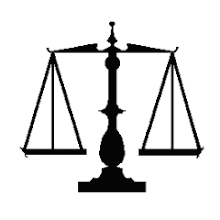Former Bosnian Serb leader Radovan Karadzic said he would appear before the Hague war crimes tribunal on Tuesday after boycotting his trial since it began last week, but only to argue for more time to prepare.
Karadzic, who denies 11 charges including genocide for the Srebrenica massacre of 8,000 Muslim men and boys during the 1992-95 Bosnian war, has refused to attend so far but said in a letter to the court he would do so on Tuesday.
"I hope we will be able to find a solution which will lead to not only an expeditious trial, but a fair one," he said in the letter released on Monday.
He is representing himself. Earlier, one of Karadzic's legal advisers, Marko Sladojevic, stressed his client would need 10 more months to prepare and that he was likely to refuse a court-appointed lawyer to represent him.
Tuesday's hearing will consider options that include continuing the trial in Karadzic's absence, assigning legal counsel, seeking outside advice, or adjourning to allow assigned counsel time to prepare.
"I think the court now has to make a decision and appoint a lawyer for him," said Axel Hagedorn, a Dutch lawyer representing the victims' group Mothers of Srebrenica.
Alexander Knoops, a professor of international criminal law at Utrecht University, has said the court should enter a compromise with Karadzic to allow him more time to prepare.
Judge O-Gon Kwon repeated his warning that Karadzic should attend the trial or have counsel appointed for him.
"We advise him to consider this carefully prior to making his oral submissions tomorrow," the South Korean judge said.
"HUMANITY'S DARK CHAPTERS"
In Karadzic's absence prosecutors continued with opening statements and spent the afternoon discussing the Srebrenica genocide, Europe's worst atrocity since World War Two.
Accusing Karadzic of responsibility for one of "humanity's dark chapters", prosecutor Alan Tieger said Karadzic ordered Bosnian Serb forces to capture the Muslim enclave of Srebrenica to crown his efforts to "cleanse" eastern Bosnia of non-Serbs.
"He knew that men were being killed, he covered up the mass expulsions and the murders and continues to do so to this day, and the only regret he had about the entire operation was that some Muslim men got away," Tieger said.
In video film shown to the court, Tieger showed a Bosnian Muslim man forced to call out to his teenage son that it was safe to surrender to the Bosnian Serbs. Both father and son were later found dead in a mass grave, he said.
He said the killings demanded a high degree of planning and the list of those who knew about the plans was long. As well as supreme commander Karadzic, it included Bosnian Serb military chief Ratko Mladic, also indicted for war crimes and still at large.
The charges against Karadzic also include the 43-month siege of Sarajevo, which killed an estimated 10,000 people.
(Additional reporting by Yvonne Bell and Suzan Yucel in The Hague and Ivana Sekularac in Belgrade; editing by Andrew Roche)
Monday, November 2, 2009
Subscribe to:
Post Comments (Atom)

No comments:
Post a Comment